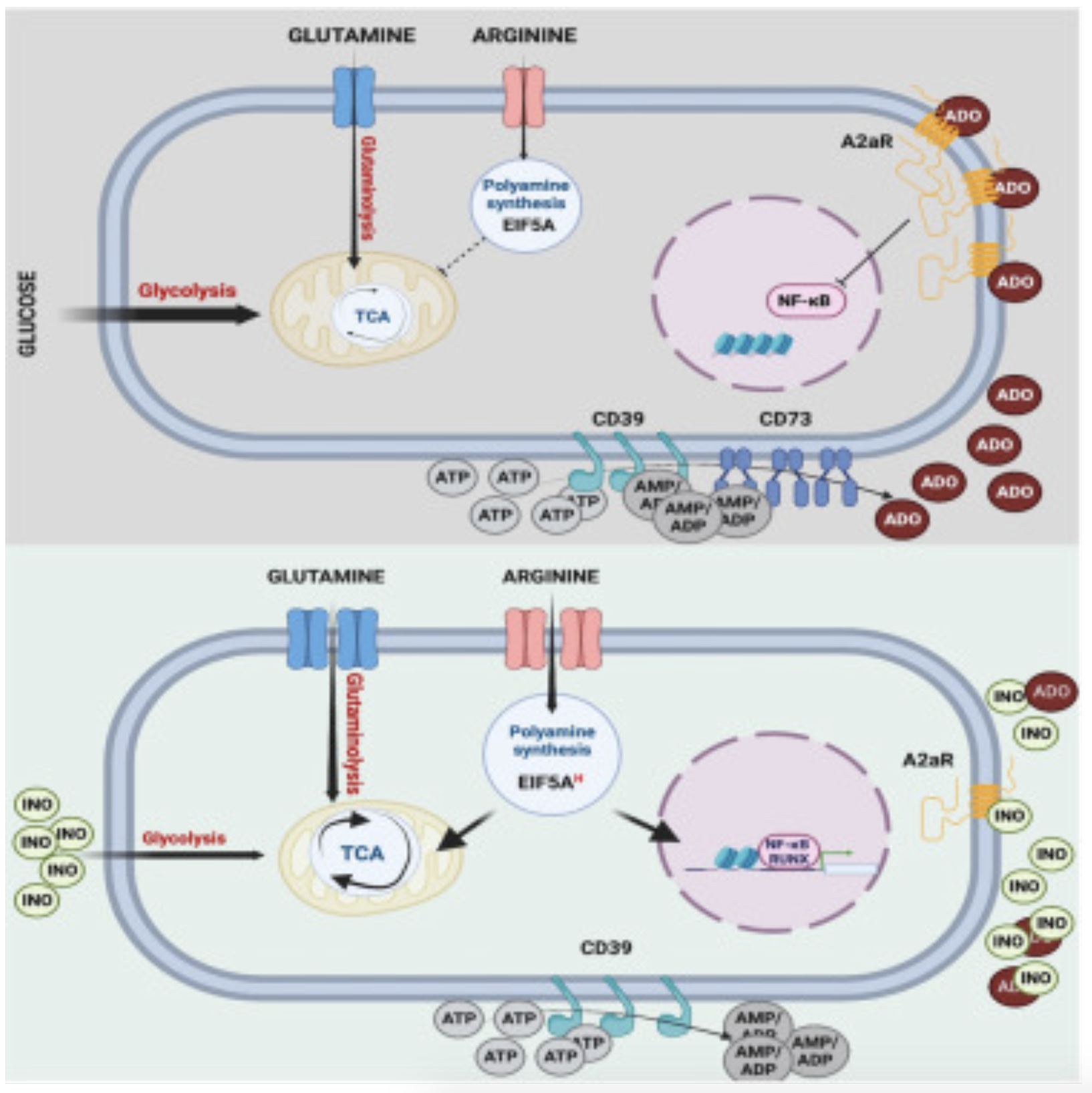
Dorota D Klysz, Carley Fowler, Meena Malipatlolla, Lucille Stuani, Katherine A Freitas, Yiyun Chen, Stefanie Meier, Bence Daniel, Katalin Sandor, Peng Xu, Jing Huang, Louai Labanieh, Vimal Keerthi, Amaury Leruste, Malek Bashti, Janette Mata-Alcazar, Nikolaos Gkitsas, Justin A Guerrero, Chris Fisher, Sunny Patel, Kyle Asano, Shabnum Patel, Kara L Davis, Ansuman T Satpathy, Steven A Feldman, Elena Sotillo, Crystal L Mackall
Cancer Cell, 12 February 2024
Adenosine (Ado) mediates immune suppression in the tumor microenvironment and exhausted CD8+ CAR-T cells express CD39 and CD73, which mediate proximal steps in Ado generation. Here, we sought to enhance CAR-T cell potency by knocking out CD39, CD73, or adenosine receptor 2a (A2aR) but observed only modest effects. In contrast, overexpression of Ado deaminase (ADA-OE), which metabolizes Ado to inosine (INO), induced stemness and enhanced CAR-T functionality. Similarly, CAR-T cell exposure to INO augmented function and induced features of stemness. INO induced profound metabolic reprogramming, diminishing glycolysis, increasing mitochondrial and glycolytic capacity, glutaminolysis and polyamine synthesis, and reprogrammed the epigenome toward greater stemness. Clinical scale manufacturing using INO generated enhanced potency CAR-T cell products meeting criteria for clinical dosing. These results identify INO as a potent modulator of CAR-T cell metabolism and epigenetic stemness programming and deliver an enhanced potency platform for cell manufacturing.